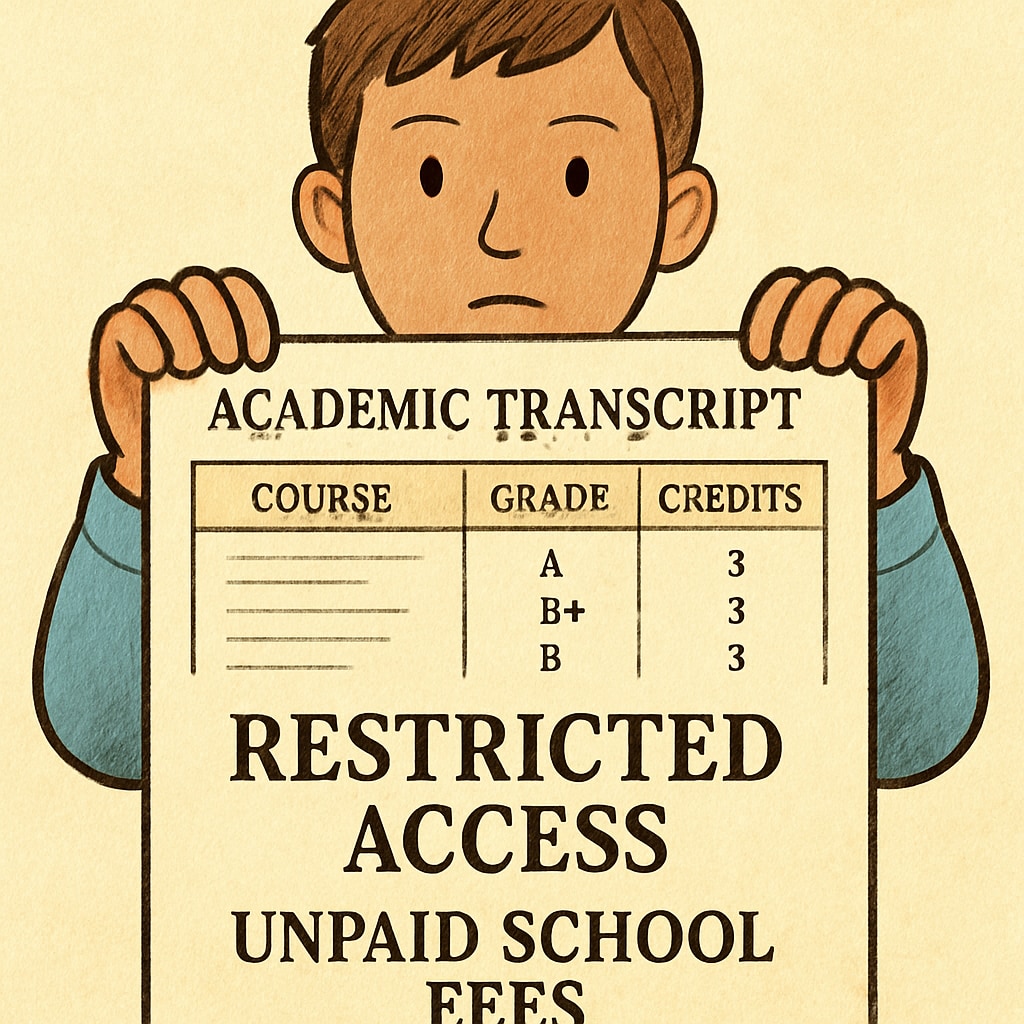For many families, financial challenges can create significant barriers to ensuring their children receive uninterrupted access to education. One of the most pressing concerns is how unpaid school fees might restrict access to critical academic records, such as transcripts or eligibility for exams like the PRC (Philippine Regulatory Commission) exams. This article explores the intersection between unpaid balances and academic rights, highlights relevant legal frameworks, and offers practical advice for navigating these challenges.
Understanding the Conflict Between Unpaid Fees and Academic Records
Many schools implement strict policies whereby students with unpaid fees are denied access to their academic records. These records are essential for various purposes, including transferring to another institution, applying for scholarships, or meeting eligibility requirements for standardized exams such as the PRC exams. While schools often justify these practices as a way to ensure financial accountability, they can impose serious hardships on families already struggling financially.
Legally, the situation varies by jurisdiction. For example, in the United States, the Family Educational Rights and Privacy Act (FERPA) guarantees students access to their educational records regardless of financial disputes. However, private institutions may still impose administrative holds. In other countries, such as the Philippines, policies might be stricter, with schools retaining records until fees are cleared. Parents need to understand local laws to effectively advocate for their children’s rights.

Legal Frameworks and Ethical Considerations
Legal systems often aim to strike a balance between schools’ financial interests and students’ educational rights. In the Philippines, for instance, the Department of Education has guidelines that discourage withholding academic records, especially when it adversely affects students’ ability to continue their education. However, enforcement of these policies can be inconsistent, leaving families uncertain about their options.
Ethically, educational institutions have a responsibility to prioritize students’ access to learning. Denying access to records can perpetuate cycles of poverty, as students may miss opportunities for advancement due to circumstances beyond their control. Schools should consider alternative methods of resolving financial disputes, such as payment plans or government subsidies, rather than penalizing students directly.

Practical Solutions for Parents Facing Financial Hardship
Parents encountering difficulties in paying school fees can take several steps to protect their children’s educational rights:
- Understand Local Laws: Research legal protections regarding academic records in your jurisdiction. Knowing your rights can empower you to negotiate with schools.
- Communicate with the School: Speak with administrators to explain your financial situation and explore options such as deferred payments or partial fee waivers.
- Seek External Assistance: Look into community resources, government programs, or NGOs that offer financial aid for education. For example, UNICEF’s education programs provide support to families in need.
- Document Everything: Keep records of all correspondence with the school to ensure transparency and accountability.
By taking these steps, families can minimize the impact of unpaid fees on their children’s academic progress.
Long-Term Strategies for Educational Equity
Addressing the issue of unpaid school fees requires systemic change. Governments and educational institutions should collaborate to develop policies that ensure access to academic records is not contingent on financial status. Potential solutions include:
- Subsidized Education: Increasing financial support for low-income families can reduce instances of unpaid balances.
- Flexible Payment Plans: Schools can offer installment-based payment systems tailored to families’ financial capacities.
- Legal Safeguards: Strengthening laws that protect students’ access to education regardless of financial conflicts.
Ultimately, prioritizing students’ educational rights benefits society as a whole by fostering a more inclusive and equitable educational system.
Conclusion: Financial hardship should never be a barrier to education. While unpaid school fees and restricted access to academic records create significant challenges, parents, educators, and policymakers can work together to ensure all students have the opportunity to succeed. By understanding legal frameworks, advocating for fair practices, and exploring practical solutions, families can navigate these difficulties effectively.


